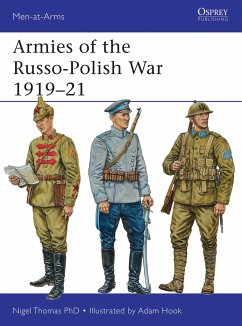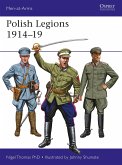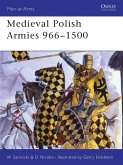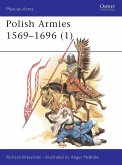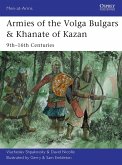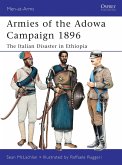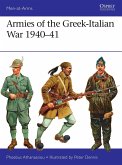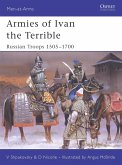Featuring specially commissioned full-color artwork, this engaging study explains and illustrates the armies that fought in the epic struggle for the rebirth of the independent Polish nation, in the bitter aftermath of World War I and the Russian Revolution. In 1917 Poland was recognized as a state by Russia, but the Bolshevik coup threatened this. The Polish leader Marshal Pilsudski hurried to build an army around Polish World War I veterans, and in 1918 war broke out for Poland's independence, involving the the Poles, the Red and White Russian armies, at least two different Ukrainian forces, and Allied intervention troops. The armies that fought these campaigns were extraordinarily varied in their uniforms and insignia, equipment and weapons, and when peace was signed in 1921, Poland had achieved recognized nationhood for the first time since 1794.
Bitte wählen Sie Ihr Anliegen aus.
Rechnungen
Retourenschein anfordern
Bestellstatus
Storno

